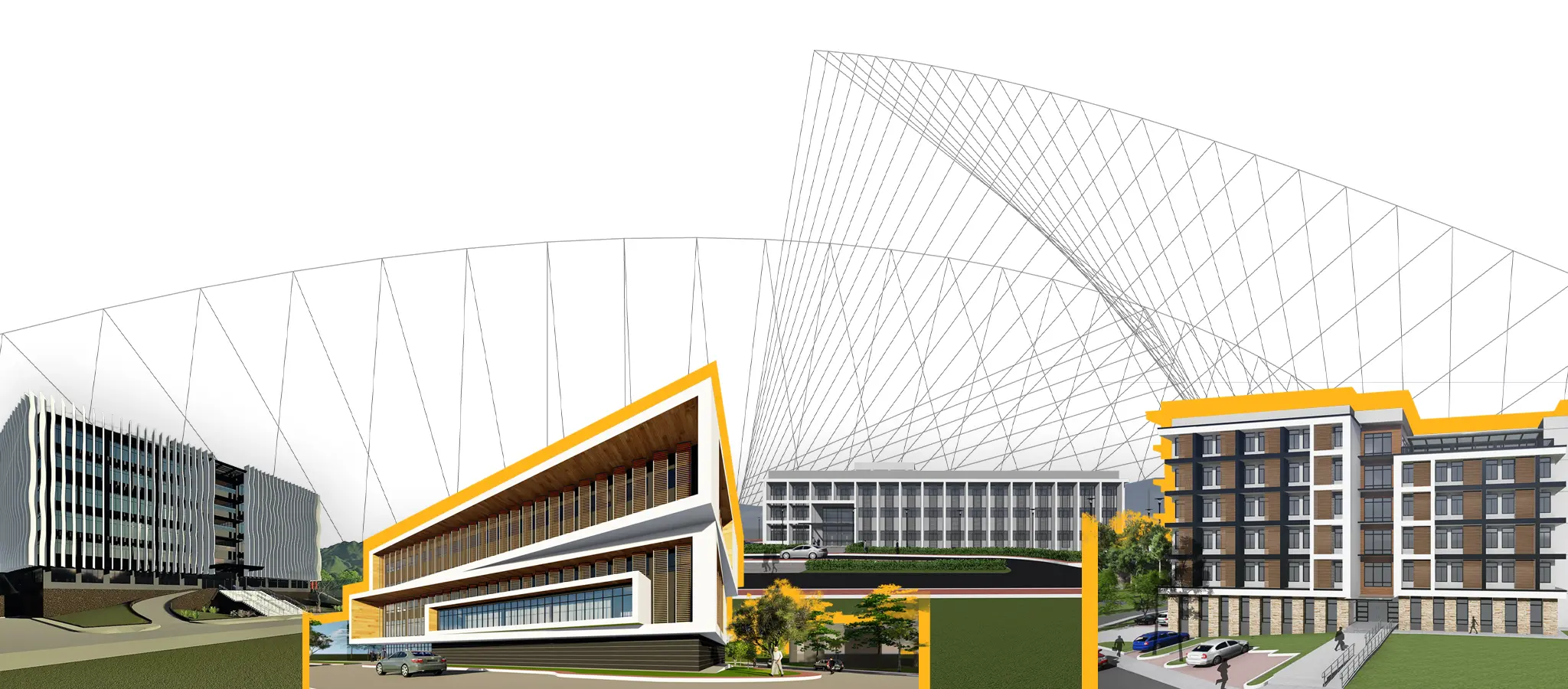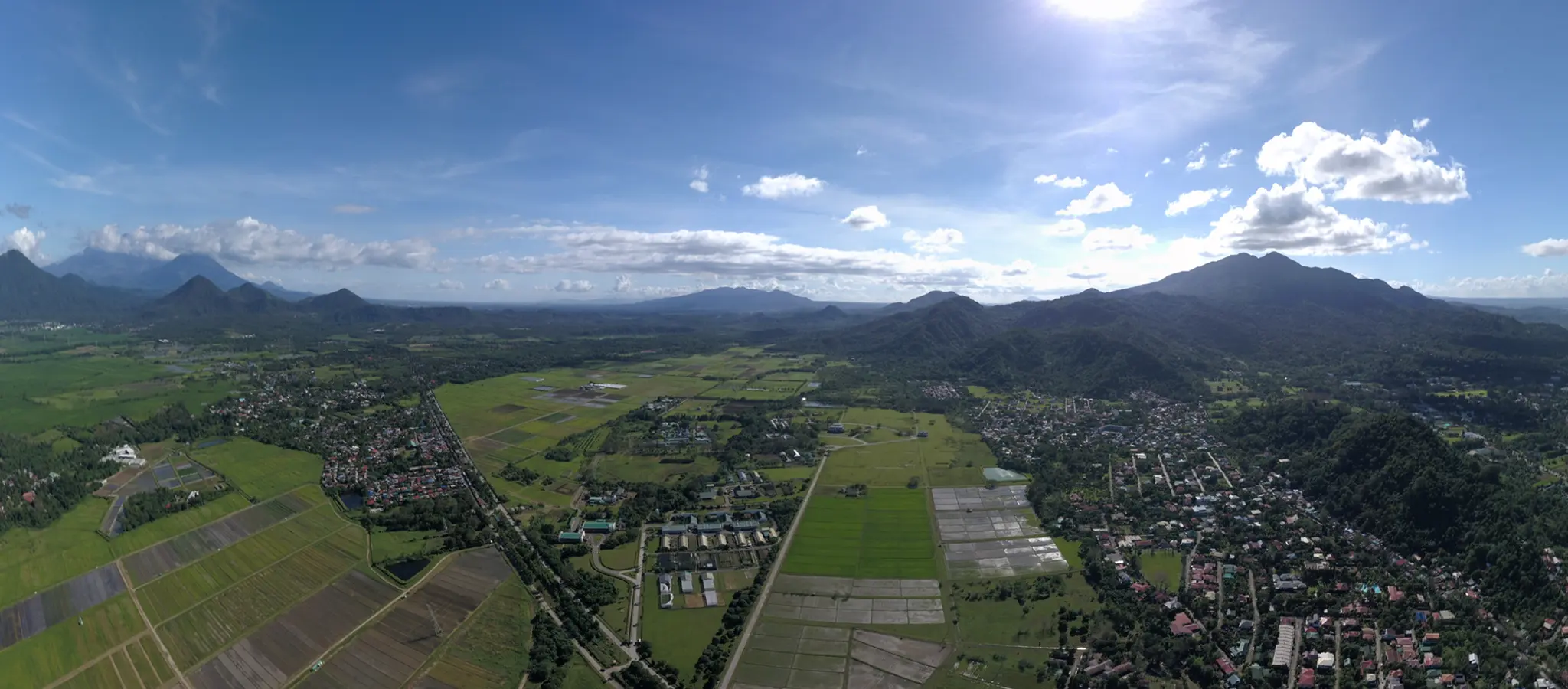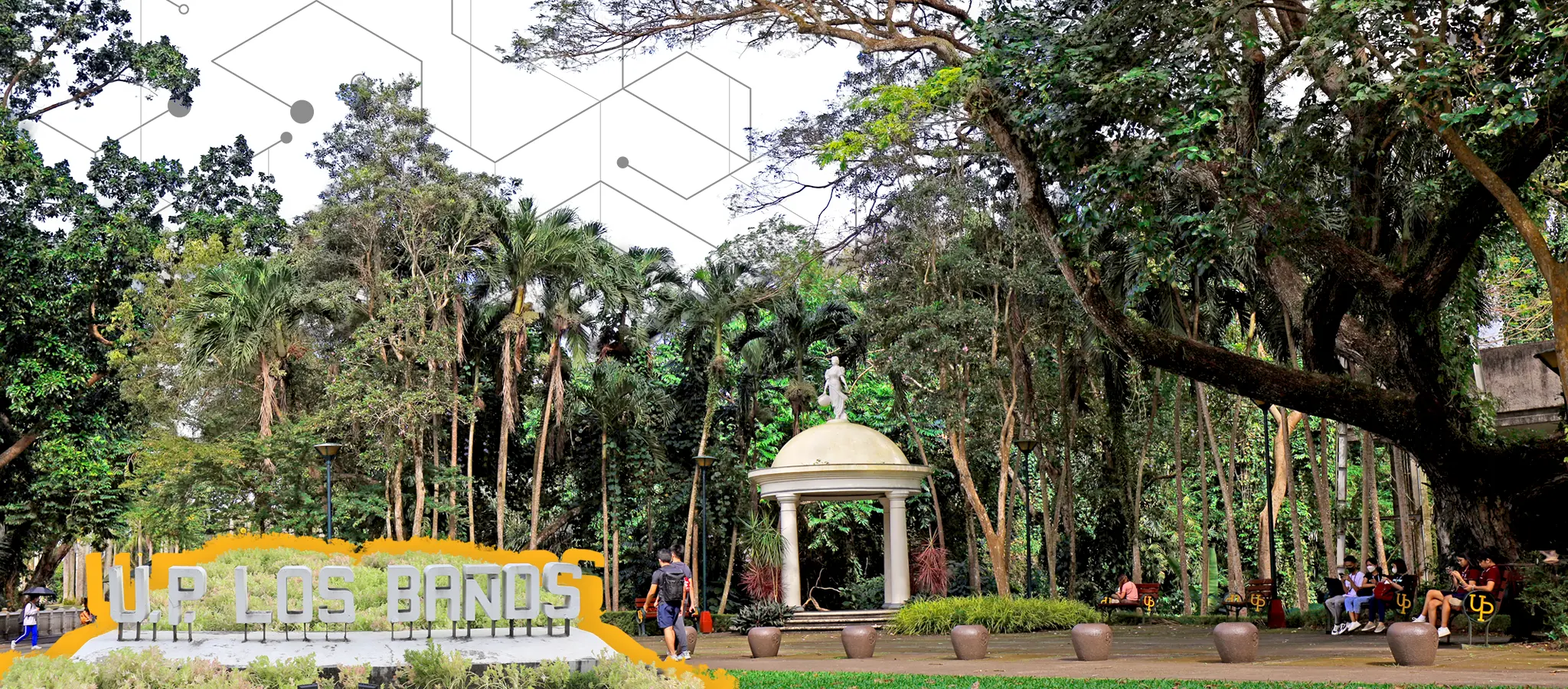
Efforts to keep up with international standards and maintain high-quality education must be supported by infrastructure. With this vision, UPLB continues to upgrade and expand its facilities to provide learning and interactive spaces for its students.
While simultaneous infrastructure projects in the University are currently in various stages of proposal, bidding, and construction, five infrastructures have been identified to have a huge effect on UPLB services in research and higher education.
University Library and Knowledge Center (ULKC)
The ULKC had its groundbreaking ceremony at the height of the pandemic in 2020. This unfavorable circumstance has not hindered the construction of the new facility. It is now fast taking shape.
The new building was designed to house the University Library, the Information Technology Center (ITC), and the Center for the Advancement of Teaching and Learning (CATL), among others.
As the new building of the University Library, the ULKC will house valuable learning materials and services with the goal of making them more accessible and a safe place for students with the dormitories just next door.
It will also feature common-use facilities such as a cafeteria, lounge, study areas, and communal meeting spaces.
Putting the ITC and CATL in the same building as the University Library will facilitate the provision of their services. The ITC can easily monitor internet connection and database accessibility while students and teachers can use CATL’s online services and facilities to create and access training and teaching materials.
Agronomy, Soils, and Horticulture Building, Crop Protection Wing
The new building of the Institute of Weed Science, Entomology, and Plant Pathology (IWEP) has long been a dream for the institute, which shares its roots with the founding of the UP College of Agriculture in 1909.
Through the decades, it has steadily become a leading research and academic institution that has built knowledge capacity in the agricultural and industrial sectors and biodiversity conservation.
With this in store for IWEP, the new building is envisioned to support its growth and enable it to pursue its vision of becoming a globally recognized institution for higher learning in entomology, plant pathology, and weed science.
The new IWEP building will house a conference room, an auditorium, a lecture hall, 12 teaching laboratories, 9 entomology research laboratories, 9 plant pathology research laboratories,
5 weed science research laboratories, and a plant pest diagnostic laboratory, preparation rooms, rooms for decontamination and instruments, and a central laboratory. These will be used for classes and will also accommodate the institute’s research projects.
Food Processing Research and Development Center
With the consistent growth of its student and faculty population in the past decades, a dedicated facility for the Institute of Food Science and Technology (IFST) has been long overdue.
The IFST has offered the Doctor of Philosophy, Master of Science, and Bachelor of Science in Food Science and Technology for almost five decades, but dedicated laboratories and lecture halls for these programs remain wanting.
Lotis E. Mopera, former director of IFST, said that they had been relying on facilities of other units at the College of Agriculture and Food Science to implement their programs for around 450 undergraduate and 50 graduate students per semester.
IFST faces mounting pressure with the addition of the Master in Food Engineering program, approved by the UP Board of Regents in July 2021, and more programs in the pipeline, including Masters in Food Safety and in Culinary Science.
Thus, it is with great relief that the Institute welcomed the construction of the Food Processing Research and Development Center.
The new five-story building will house a food processing plant on the first floor, in addition to the pilot plant in their main building. The second, third, and fourth floors will have lecture and laboratory rooms, while the fifth floor will have a 200-people capacity conference hall. It will also have faculty and student lounges as communal meeting spaces.
Aside from accommodating the internal requirements of the Institute, these facilities will also benefit IFST’s stakeholders as they envision using these to increase the volume of their production processes and to hold more training programs.
New buildings at the Graduate School International Complex
UPLB has a diverse demographic, with its students not only coming from different regions but also from neighboring countries. These different cultures and backgrounds all come together on campus, potentially producing various perspectives, critical discourse, and novel solutions.
Recognizing that not all learning happens within the confines of a formal class, the Graduate School (GS) has prepared facilities that can become spaces and avenues where students, teachers, and researchers can freely exchange ideas.
Dr. Rhea L. Gumasing, assistant college secretary of the Graduate School, said that their unit’s transfer to the new buildings will also greatly improve GS’s service, especially as they migrate to having more digital transactions.
GS International Student and Cultural Center Building
This new building will become the headquarters of the Graduate School offices where student services will be handled. It will also house dormitory rooms with living amenities and recreational areas for international graduate students and visiting faculty and researchers.
Its academic facilities include a student and faculty lounge, meeting rooms, a reading room, and computer rooms.
The new GS building had its soft launching on Dec. 12, 2022, in time for the Graduate School’s 50th anniversary.
Dorm for Graduate Students
As the University continues to attract students who want to pursue their graduate studies in UPLB, it has also expanded its amenities to accommodate them.
The new GS Dormitory is a six-story building that can house up to 200 students. Its common amenities include a lounge, a fitness gym, seminar rooms, and a view deck. It is also open to visiting faculty.
Since its establishment, UPLB has grown exponentially and expanded its role as a cultivator of leaders and a producer of relevant research, technologies, and programs.
With these new infrastructures to aid its pursuit of national development, UPLB will become better equipped to face future challenges amidst rapid and complex changes in society.
Share this on:



